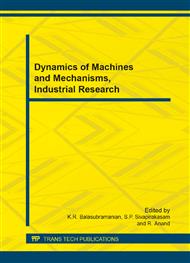p.1697
p.1706
p.1714
p.1719
p.1723
p.1728
p.1733
p.1738
p.1746
Performance of a Direct Injection Diesel Engine Using Jatropha Diesel Blends as Fuel
Abstract:
Jatropha bio diesel blended with mineral diesel in proportion 2:1 by volume is used to conduct performance test and emission characteristics of a single cylinder direct injection diesel engine. Jatropha-diesel blend is used to perform engine performance and emission tests at variable loads & throttle settings (25%, 50%, 75% and 100%). Observed data were utilized to obtain various performance parameters such as brake power, brake specific fuel consumption, brake thermal efficiency at various loads and throttle settings. Simultaneously observations were also made to obtain exhaust gas temperatures and exhaust emissions (CO, CO2, HC and NOx). In existing engine diesel provides higher and economic power generating capacity for entire operating ranges but effect of varying load /throttle on performance behavior were fantastically similar. Reduced HC and NOx emission with the blend also better, highlights some positive aspects of combustion and allowance for higher compression ratio with the blend.
Info:
Periodical:
Pages:
1723-1727
Citation:
Online since:
July 2014
Authors:
Price:
Сopyright:
© 2014 Trans Tech Publications Ltd. All Rights Reserved
Share:
Citation:


